PROLOGUE
The poet E.T.A. Hoffmann is in love with Stella, a renowned opera singer. Lindorf, a rich counselor, also loves her and has intercepted a note she has written to Hoffmann. Lindorf is confident he will win her for himself. Arriving at Luther’s tavern with a group of students, Hoffmann sings a ballad about a disfigured dwarf named Kleinzach. During the song, his mind wanders to recollections of a beautiful woman. When Hoffmann recognizes Lindorf as his rival, the two men trade insults. Hoffmann’s Muse, who has assumed the guise of his friend Nicklausse, interrupts, but the encounter leaves the poet with a sense of impending disaster. He begins to tell the stories of his three past loves.
ACT I
In his workshop in Paris, the eccentric inventor Spalanzani has created a mechanical doll named Olympia. Hoffmann, who thinks the girl is Spalanzani’s daughter, has fallen in love with her. Spalanzani’s former partner Coppélius sells Hoffmann a pair of magic glasses, through which he alone perceives Olympia as human. When Coppélius demands his share of the profits that the two inventors expect to make from the doll, Spalanzani gives him a worthless check.
Guests arrive at the fairground, and Olympia captivates the crowd with the performance of a dazzling aria, which is interrupted several times in order for the doll’s mechanism to be recharged. Oblivious to this while watching her through his glasses, Hoffmann is enchanted. He declares his love, and the two dance. Olympia whirls faster and faster as her mechanism spins out of control. During the melee, Hoffmann’s glasses break. Coppélius, having discovered that the check was worthless, returns in a fury. He grabs Olympia and tears her apart as the guests mock Hoffmann for falling in love with a machine.
ACT II
At an elegant home in Munich, the young girl Antonia sings a plaintive love song filled with memories of her dead mother, a famous singer. Her father, Crespel, has taken her away in the hopes of ending her affair with Hoffmann and begs her to give up singing: She has inherited her mother’s weak heart, and the effort will endanger her life. Hoffmann arrives, and Antonia joins him in singing until she nearly faints. Crespel returns, alarmed by the arrival of the charlatan Dr. Miracle, who treated Crespel’s wife the day she died. The doctor claims he can cure Antonia, but Crespel accuses him of killing his wife and forces him out. Hoffmann, overhearing their conversation, asks Antonia to give up singing, and she reluctantly agrees. The moment he has left, Miracle reappears, urging Antonia to sing. He conjures up a vision of her mother, who claims she wants her daughter to relive the glory of her own fame. Antonia can’t resist. Her singing becomes more and more feverish until she collapses. Miracle coldly pronounces her dead.
ACT III
At her palace in Venice, the courtesan Giulietta joins Nicklausse in singing a barcarole. A party is in progress, and Hoffmann mockingly praises the pleasures of the flesh. When Giulietta introduces him to her current lover, Schlémil, Nicklausse warns the poet against the courtesan’s charms. Hoffmann denies any interest in her. Having overheard them, the sinister Dapertutto produces a large diamond with which he will bribe Giulietta to steal Hoffmann’s reflection—just as she already has stolen Schlémil’s shadow. As Hoffmann is about to depart, Giulietta seduces him into confessing his love for her. Schlémil returns and accuses Giulietta of having left him for Hoffmann, who realizes with horror that he has lost his reflection. Schlémil challenges Hoffmann to a duel and is killed. Hoffmann takes the key to Giulietta’s boudoir from his dead rival but finds the room empty. Returning, he sees her leaving the palace in the arms of the dwarf Pitichinaccio.
EPILOGUE
Having finished his tales, all Hoffmann wants is to forget. Nicklausse declares that each story describes a different aspect of one woman: Stella. Arriving in the tavern after her performance, the diva finds Hoffmann drunk and leaves with Lindorf. The muse sheds the form of Nicklausse and resumes her true appearance, telling the poet to find consolation in his creative genius.
Prologue
A tavern in Nuremberg: The Muse appears and reveals to the audience her purpose is to draw Hoffmann's attention, and make him abjure all other loves, so he can be devoted to her: poetry. She takes the appearance of Hoffmann's closest friend, Nicklausse. The prima donna Stella, performing Mozart's Don Giovanni, sends a letter to Hoffmann, requesting a meeting in her dressing room after the performance. The letter and the key to the room are intercepted by Councillor Lindorf ("Dans les rôles d'amoureux langoureux" – In the languid lovers' roles), the first of the opera's incarnations of evil, Hoffmann's nemesis. Lindorf intends to replace Hoffmann at the rendezvous. In the tavern, students wait for Hoffmann. He finally arrives, and entertains them with the legend of Kleinzach the dwarf ("Il était une fois à la cour d'Eisenach" – Once upon a time at the court of Eisenach). Lindorf coaxes Hoffmann into telling the audience about his three great loves.
Act 1 (Olympia)
This act is based on a portion of "Der Sandmann" (The Sandman).
Hoffmann's first love is Olympia, an automaton created by the scientist Spalanzani. Hoffmann falls in love with her, not knowing Olympia is a mechanical doll ("Allons! Courage et confiance...Ah! vivre deux!" – Come on! Courage and confidence ... Ah! to live!). To warn Hoffmann, Nicklausse, possessing the truth about Olympia, sings a story of a mechanical doll with the appearance of a human, but Hoffmann ignores him ("Une poupée aux yeux d'émail" – A doll with enamel eyes). Coppélius, Olympia's co-creator and this act's incarnation of Nemesis, sells Hoffmann magic glasses to make Olympia appear as a real woman ("J'ai des yeux" – I have eyes).
Olympia sings one of the opera's most-famous arias, "Les oiseaux dans la charmille" (The birds in the arbor, nicknamed "The Doll Song"), during which she runs-down and needs to be wound-up before she can continue. Hoffmann is tricked into believing his affections are returned, to the bemusement of Nicklausse, subtly attempting to warn his friend ("Voyez-la sous son éventail" – See her under her fan). While dancing with Olympia, Hoffmann falls on the ground and his glasses break. At the same time, Coppélius appears, tearing Olympia apart to retaliate against Spalanzani after cheating him of his fees. With the crowd ridiculing him, Hoffmann realizes he loved an automaton.
Act 2 (Antonia)
This act is based on "Rath Krespel".
After a long search, Hoffmann finds the house where Crespel and his daughter Antonia are hiding. Hoffmann and Antonia loved each other, but were separated after Crespel decided to hide his daughter from Hoffmann. Antonia inherited her mother's talent for singing, but her father forbids her to sing because of her mysterious illness. Antonia wishes her lover would return to her ("Elle a fui, la tourterelle" – "She fled, the dove"). Her father also forbids her to see Hoffmann, encourages Antonia in her musical career, and therefore, endangers her without knowing it. Crespel tells Frantz, his servant, to stay with his daughter, and after Crespel leaves, Frantz sings a comical song about his talents "Jour et nuit je me mets en quatre" – "Day and night, I quarter my mind."
After Crespel leaves his house, Hoffmann takes advantage of the occasion to sneak in, and the lovers are re-united (love duet: "C'est une chanson d'amour" – "It's a love song"). After Crespel returns, he receives a visit from Dr Miracle, the act's Nemesis, forcing Crespel to let him heal her. Eavesdropping, Hoffmann learns Antonia may die if she sings too much. He returns to her boudoir, and makes her promise to give up her artistic-dreams. Antonia reluctantly accepts her lover's will. After she is alone, Dr Miracle enters Antonia's boudoir to persuade her to sing and follow her mother's path to glory, stating Hoffmann is sacrificing her to his brutishness, and loves her only for her beauty. With mystic powers, he raises a vision of Antonia's dead mother and induces Antonia to sing, causing her death. Crespel arrives just in time to witness his daughter's last breath. Hoffmann enters, and Crespel wants to kill him, thinking he is responsible for his daughter's death. Nicklausse saves his friend from the old man's vengeance.
Act 3 (Giulietta)
This act is loosely-based on Die Abenteuer der Silvester-Nacht (A New Year's Eve Adventure).
Venice. The act opens with the barcarolle "Belle nuit, ô nuit d'amour" – "Beautiful night, oh night of love". Hoffmann falls in love with the courtesan Giulietta, and thinks she returns his affections ("Amis, l'amour tendre et rêveur" – "Friends, tender and dreamy love"). Giulietta is not in love with Hoffmann, but seducing him under the orders of Captain Dapertutto, promising to give her a diamond if she steals Hoffmann's reflection from a mirror ("Scintille, diamant" – "Sparkle, diamond"). The jealous Schlemil (cf. Peter Schlemihl for a literary antecedent), a previous victim of Giulietta and Dapertutto (he gave Giulietta his shadow), challenges the poet to a duel, but is killed. Nicklausse wants to take Hoffmann away from Venice, and goes looking for horses. Meanwhile, Hoffmann meets Giulietta, and cannot resist her ("O Dieu! de quelle ivresse" – "O God! of what intoxication"): he gives her his reflection, only to be abandoned by the courtesan, to Dapertutto's great pleasure. Hoffmann tells Dapertutto his friend Nicklausse will come and save him. Dapertutto prepares a poison to get rid of Nicklausse, but Giulietta drinks it by mistake, dropping dead in the poet's arms.
Epilogue
The tavern in Nuremberg: Hoffmann, drunk, swears he will never love again, and explains Olympia, Antonia, and Giulietta are three facets of the same person, Stella. They represent, respectively, the young girl's, the musician's, and the courtesan's side of the prima donna. After Hoffmann says he doesn't want to love any more, Nicklausse reveals she is the Muse and reclaims Hoffmann: "Be reborn a poet! I love you, Hoffmann! Be mine!" – "Renaîtra un poète! Je t'aime, Hoffmann! Sois à moi!" The magic of poetry reaches Hoffmann as he sings "O Dieu! de quelle ivresse – "O God! of what intoxication" once more, ending with "Muse, whom I love, I am yours!" – "Muse que j'aime, je suis à toi!" At this moment, Stella, tired of waiting for Hoffmann to come to her rendezvous, enters the tavern and finds him drunk. The poet tells her to leave ("Farewell, I will not follow you, phantom, spectre of the past" – "Adieu, je ne vais pas vous suivre, fantôme, spectre du passé"), and Lindorf, waiting in the shadows, comes forth. Nicklausse explains to Stella that Hoffmann does not love her anymore, but Councillor Lindorf is waiting for her. Some students enter the room for more drinking, while Stella and Lindorf leave together.


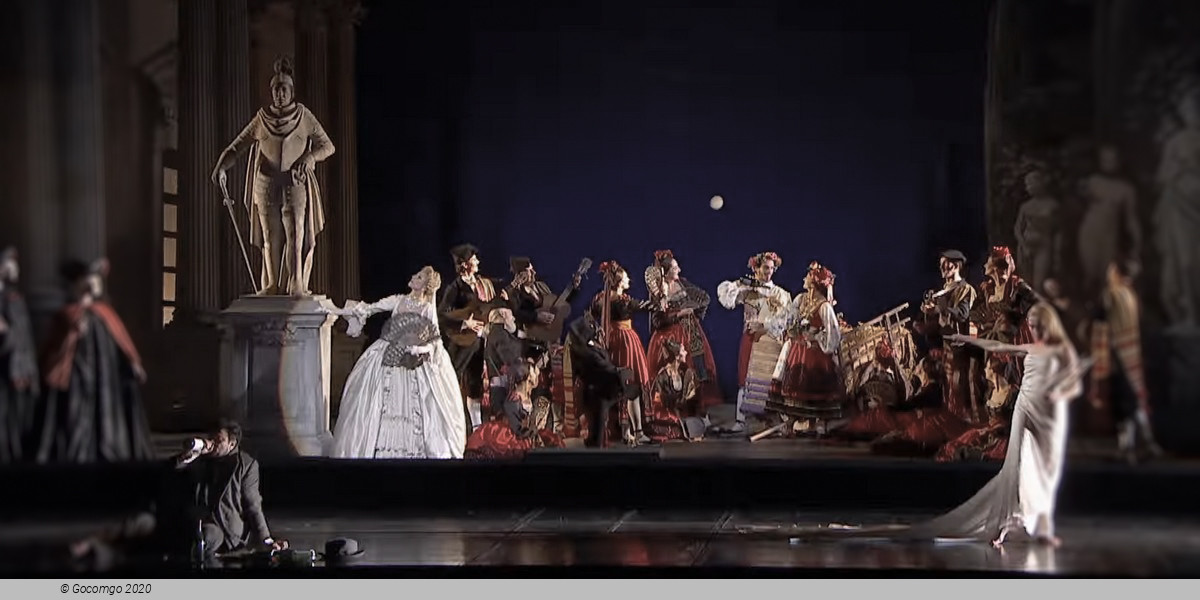
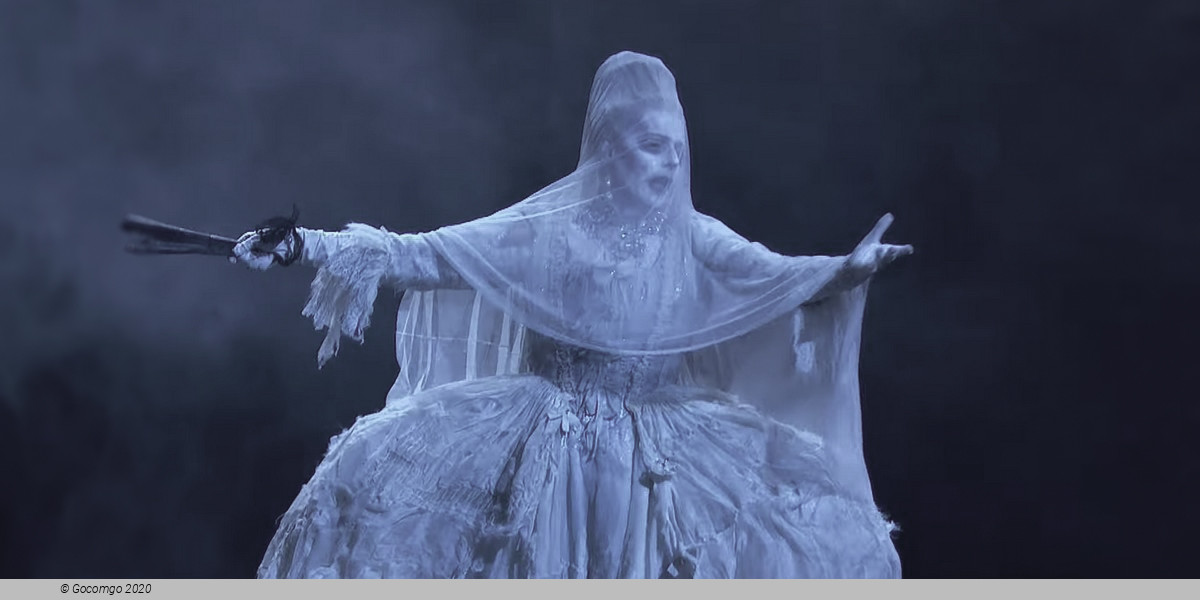
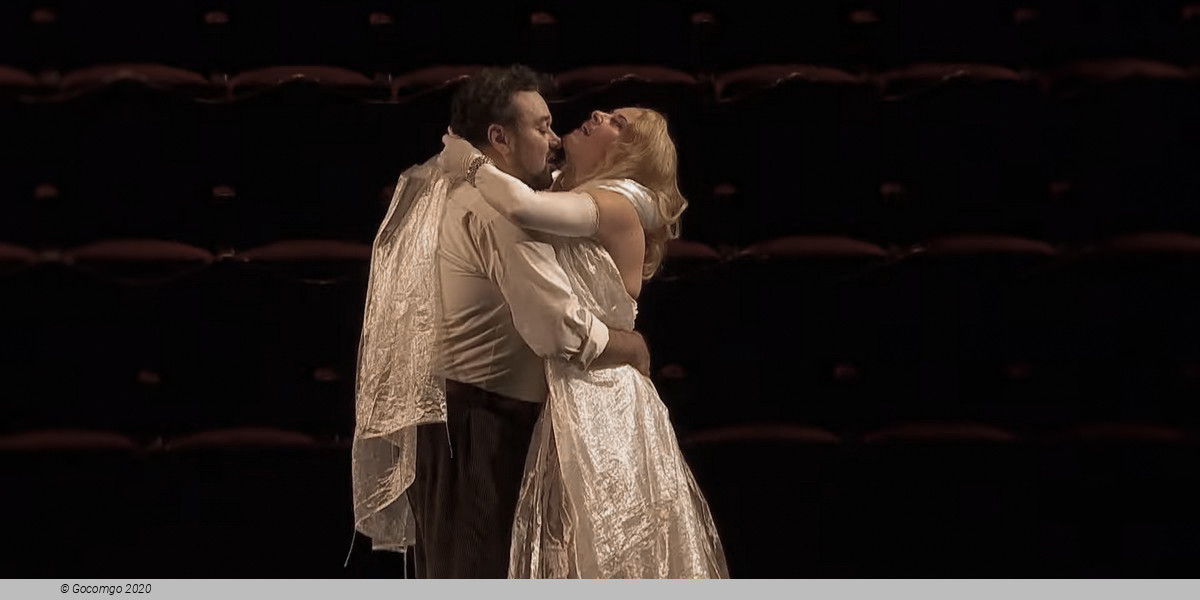
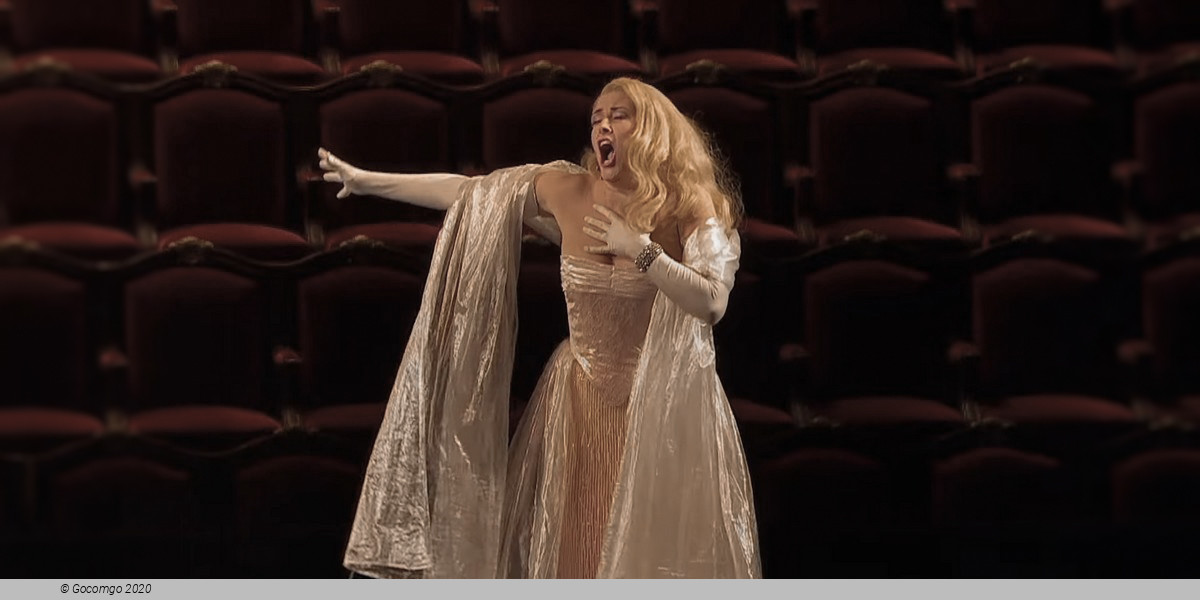
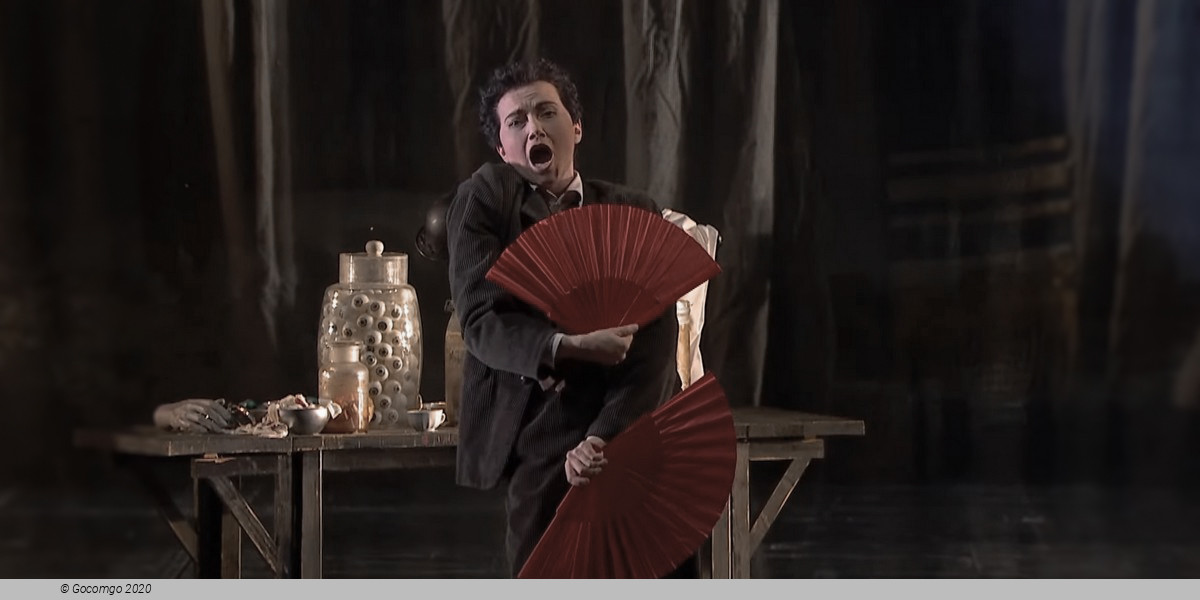
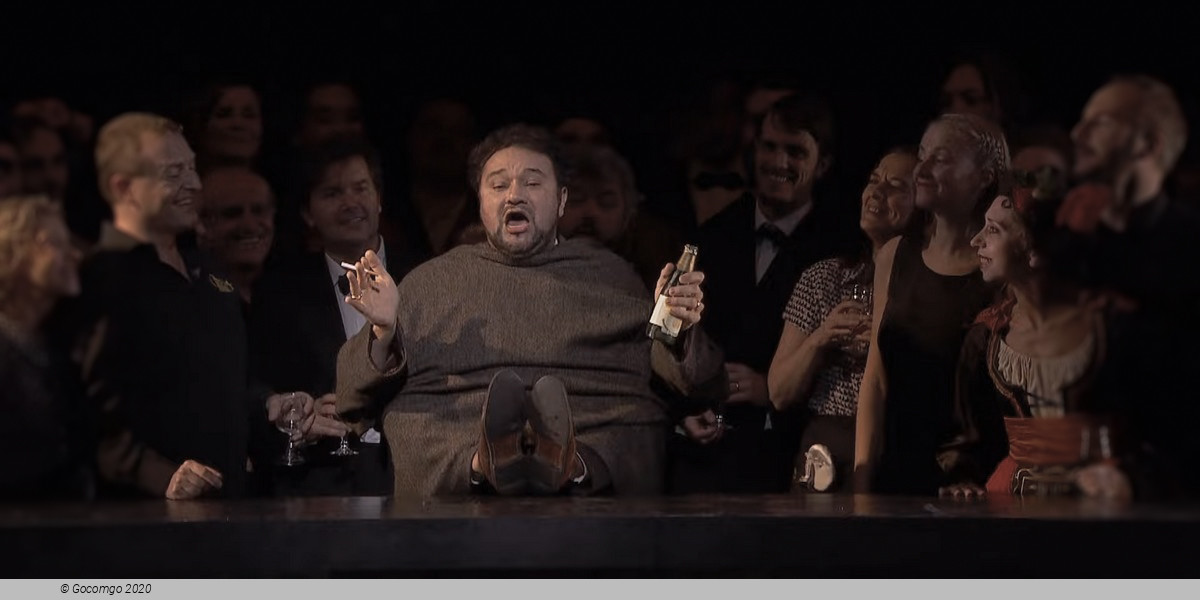
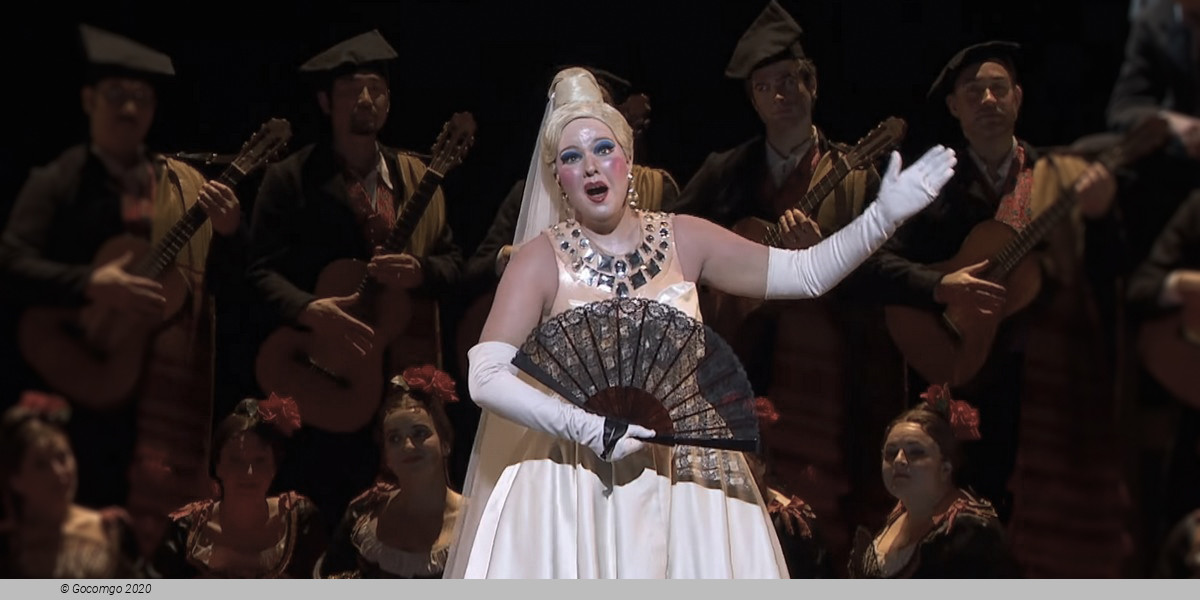
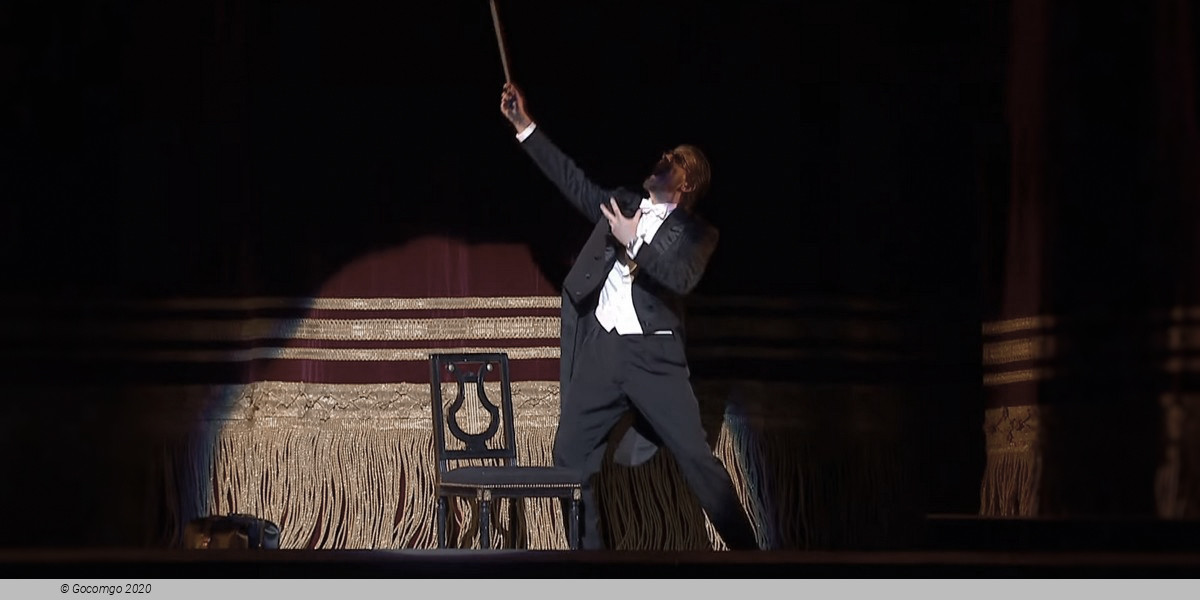
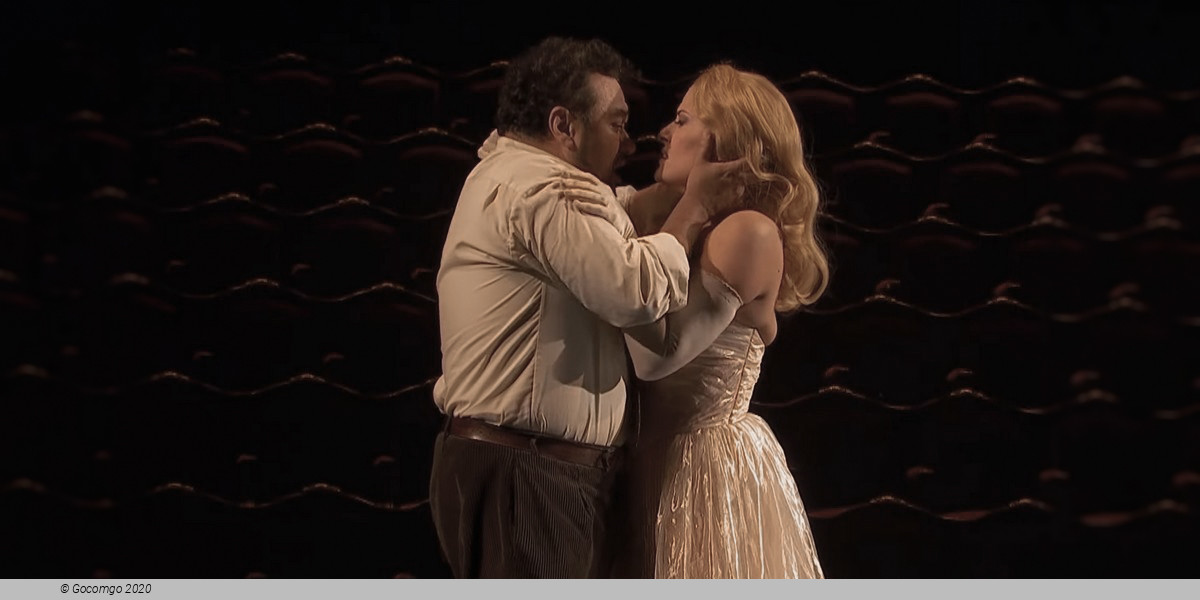
 30 Lincoln Center
30 Lincoln Center